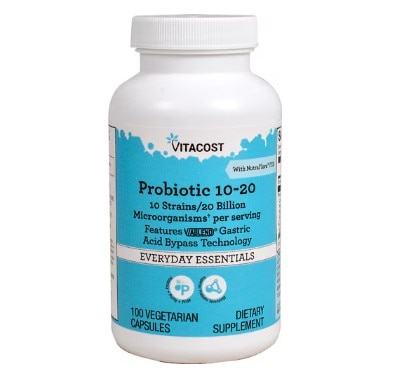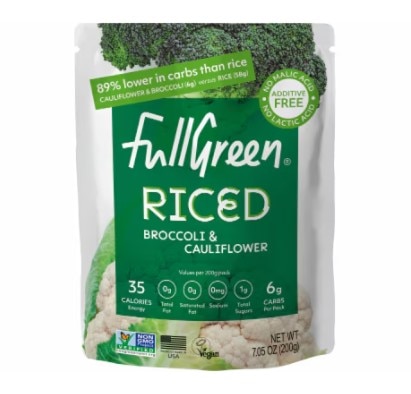With all the other challenges you face during menopause, gut health is the last thing you want to add to the list. But hormonal changes can affect the number and types of bacteria in your gut, which may increase the risk of gut damage and affect how your body processes hormones like estrogen.
Supporting a strong, diverse gut microbiome could be the key to getting menopause digestive problems under control and maintaining a healthy gut during and after the transition.
The Important Connection Between Menopause and Gut Health
Estrogen and progesterone, two main hormones that decrease during menopause, help control digestion. Estrogen receptors in the gut regulate how quickly food moves through the digestive tract and how strongly you perceive pain signals in organs like your intestines. Progesterone affects digestion by reducing the gallbladder contractions that release bile to break down fat.
Both hormones support the production of proteins that strengthen the protective barrier lining your gut. These proteins help maintain the barrier’s function and regulate inflammation to prevent damage that can lead to symptoms of leaky gut.
As menopause progresses, the functions of estrogen and progesterone decrease and cause digestive discomfort like gas, bloating and constipation or diarrhea.
The gut microbiome in menopause
Changes in the gut during and after menopause go beyond functional. Studies have documented shifts in the microbiome that include decreased microbial diversity and richness — or fewer types and numbers of species present in the gut.
Before you enter perimenopause, your microbiome tends to be more diverse and have higher levels of beneficial bacteria like Lactobacillus and Bifidobacteria. But menopause appears to affect the balance of bacteria and cause levels of Firmicutes and Ruminococcus to decrease while Butyricimonas, Dorea, Prevotella, Sutterella and Bacteroides increase.
However, the alterations may not all be negative. Some of the increased microbes have been associated with obesity, but many of them produce short-chain fatty acids that may support overall health. Levels of potentially pathogenic bacteria like E. coli have also been shown to decrease during menopause.
These changes start to make the otherwise distinct female microbiome look more like that of a man, which suggests a connection with hormones. To test this theory, researchers induced menopause in mice and gave supplemental estrogen to one group while leaving another group untreated. They found that the gut microbiomes of the mice that received the hormones were restored almost to the pre-menopausal state.
The role of the estrobolome
A collection of genes found in some types of gut microbes may explain the relationship between hormones and gut health during menopause. Known as the “estrobolome,” these genes enable bacteria like Firmicutes, Bacteroidetes and Akkermansia to produce enzymes that enable your body to re-absorb estrogen after it’s been metabolized in your liver.
Having a richer, more diverse microbiome appears to support this process. However, menopause could reduce the number of microbes in your gut that have the estrobolome genes, which could leave less estrogen available for your body to use.
But re-absorbing too much estrogen may also cause problems. Some research suggests that an increase in circulating estrogen could contribute to hormone-driven diseases like breast and endometrial cancer. The weight gain associated with menopause, which may also raise estrogen levels, could increase the risk of these conditions.
What Helps With Digestive Problems During Menopause?
Researchers still aren’t clear on whether hormones directly cause changes in gut health during menopause or if variations in the gut microbiome are a natural part of aging that may also affect hormone levels.
But you don’t have to solve the chicken-and-egg riddle to start supporting your microbiome for better gut health. Whether you’re already in menopause or the transition is still a long way off, you can make several diet and lifestyle changes that help maintain microbial diversity and promote hormonal balance:
- Maintain a gut-friendly diet of high-fiber foods like fruits, vegetables, whole grains and legumes. Fiber-rich diets increase the number SCFA-producing bacteria in your gut and may support a healthy gut barrier.
- Support estrogen and progesterone naturally with phytoestrogens from flax seeds, whole grains, legumes, cruciferous vegetables and minimally processed soy foods like tofu, tempeh and edamame. Phytoestrogens interact with estrogen receptors to potentially regulate estrogen levels, which could minimize the symptoms of menopause in some people.
- Try lactic acid probiotics containing species like Lactobacilluscasei, helveticus, rhamnosus and reuteri. These bacteria may support estrogen availability and bone density while regulating inflammation, supporting healthy cholesterol and maintaining blood sugar levels.
- Support sleep to minimize inflammation, maintain a healthy gut barrier and support SCFA producers in your microbiome.
Soothe an irritated gut with supplements. If you do experience digestive problems during menopause, supplements like deglycyrrhized licorice licorice, l-glutamine and zinc carnosine may help bring your gut back into balance.




